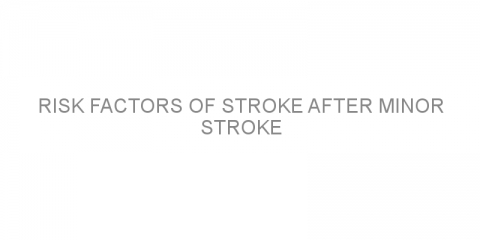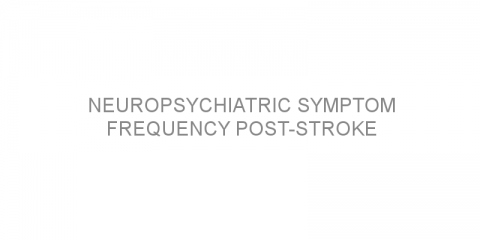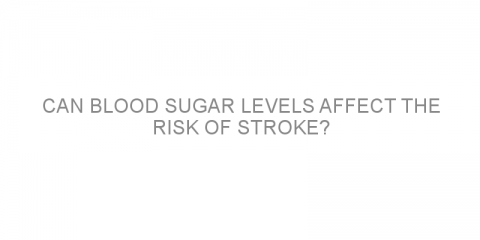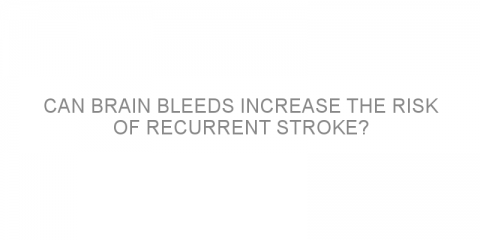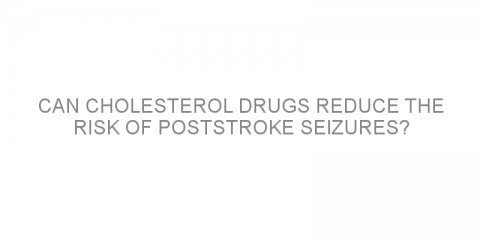In a nutshell The authors looked at risk factors associated with a higher chance of recurring stroke for patients who have had a minor stroke. They concluded that patients with less severe initial stroke, heart disease, multiple blocked blood vessels or a blocked artery are at a higher risk of recurring stroke. Some background Patients who have...
Read MoreStroke Posts on Medivizor
Kidney function post-stroke
In a nutshell The authors examined the prevalence of kidney (renal) damage and impaired renal function in patients post-stroke. They concluded that following stroke patients have a higher incidence of renal damage, especially elderly women, patients with a physical disability and patients with diabetes. Some background Impaired kidney, or...
Read MoreNeuropsychiatric symptom frequency post-stroke
In a nutshell This article examined the frequency of neuropsychiatric symptoms in stroke patients and whether a specific type of stroke results in a certain type of symptom. The authors concluded that patients with more severe stroke were more likely to have neuropsychiatric symptoms. Some background Neuropsychiatric symptoms include behavioral...
Read MoreLong-term fatigue after stroke
In a nutshell The authors contacted patients 6 years after a stroke to determine whether post-stroke fatigue was a long-term symptom. They concluded that fatigue is a common long-term effect of stroke and the risk is highest for those with more severe stroke. Some background Post-stroke fatigue (PSF) refers to constant tiredness experienced for a...
Read MoreCan blood sugar levels affect the risk of stroke?
In a nutshell The authors aimed to determine whether prediabetes was a risk factor for recurring stroke in patients with TIA or minor stroke. They concluded that prediabetes increases the risk of stroke in this population of patients. Some background A transient ischemic attack (TIA) is a type of minor stroke where a blood vessel is temporarily...
Read MoreThe effect of statin therapy on reducing the risk of post-stroke complications
In a nutshell The authors used stroke patient history to determine if statin therapy was effective at reducing post-stroke complications in an older population. They concluded that statin therapy lowers the risk of post-stroke problems, hospital readmission and death in this population. Some background Statins are therapies used to lower...
Read MoreCan brain bleeds increase the risk of recurrent stroke?
In a nutshell The authors of this meta-analysis attempted to determine whether cerebral microbleeds increased the risk of recurrent ischemic stroke and intracerebral hemorrhage in patients who had an ischemic stroke. They concluded that patients with cerebral microbleeds had a higher risk of recurrent ischemic stroke and intracerebral hemorrhage than...
Read MoreIs an increased intake of soy products increasing your chance of stroke?
In a nutshell This study examined whether there was a link between dietary isoflavones and stroke. The authors concluded that for people who consume a high amount of isoflavones, there is a small increase in the risk of stroke. Some background Previous studies have shown that chemically synthesized estrogens can result in an increased...
Read MoreGuest Post Recipe: Roasted Seasoned Salmon For Your Heart
Medivizor is pleased to share a few recipes by Holly Clegg. A graduate of Le Cordon Bleu Paris, Holly has spent over 20 years creating tasty, healthy, easy recipes that fit into today’s lifestyle. Her self-published trim&TERRIFIC® Cookbook Series has sold over 1 million copies.* Part of her series includes specialized cookbooks for people...
Read MorePoststroke exercise – the benefits
In a nutshell This review aimed to describe the benefits of physical activity and cognitive training for stroke patients. The authors concluded that aerobic exercise combined with resistance exercise was more beneficial than either alone. Some background Stroke patients commonly experience motor or cognitive disabilities that can affect their...
Read MorePredictors of movement recovery after stroke
In a nutshell This study examined predictive factors of regaining upper limb (arm and hand) movement in stroke patients. The authors concluded that voluntary finger extension (lifting) 4 to 8 weeks after stroke is a good indication for regaining upper limb movement within 6 months. Some background Many stroke patients lose some ability to move....
Read MoreCan cholesterol drugs reduce the risk of poststroke seizures?
In a nutshell This study aimed to see whether statin drugs (to lower blood cholesterol) would be useful for stroke patients in reducing the risk of epilepsy after stroke. The authors concluded that statins reduced the risk of early-onset seizures in patients after stroke. Some background Stroke is the most common cause of epilepsy in older people....
Read More
